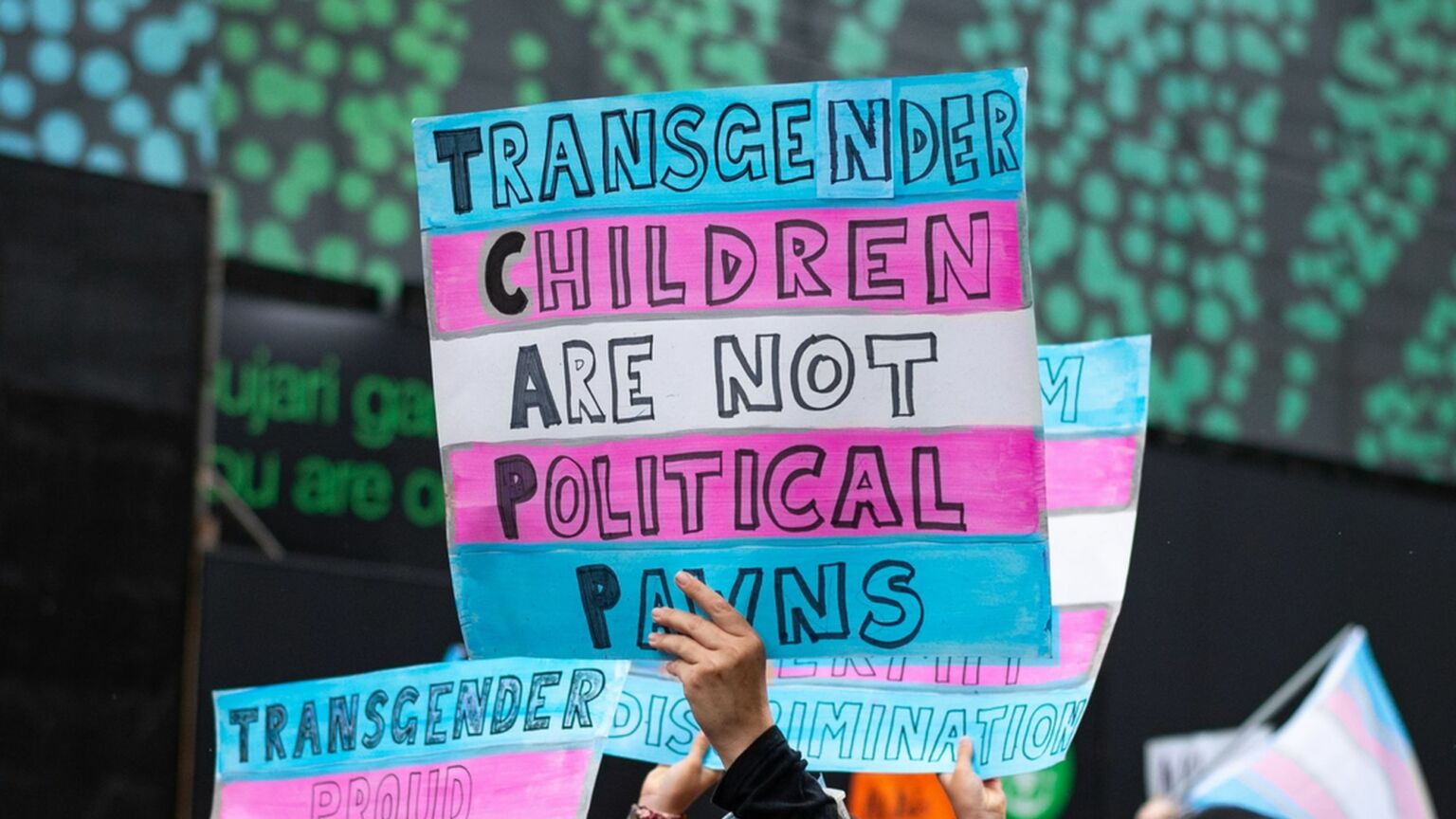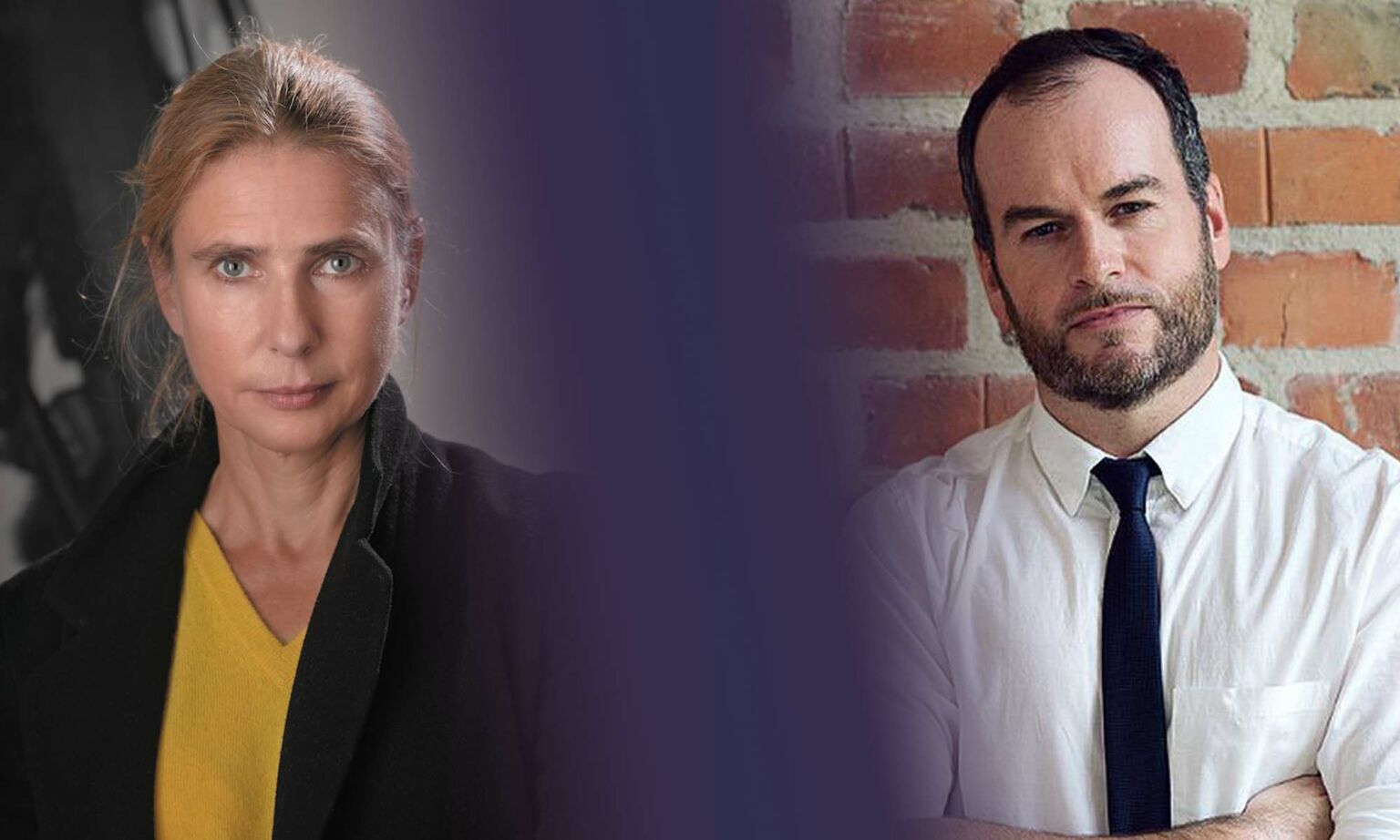Mermaids: is the trans house of cards finally falling?
The damaging ideas of the trans lobby are crumbling under public scrutiny.

Want to read spiked ad-free? Become a spiked supporter.
So here we are again. Another major institution of the once untouchable trans lobby has started to crumble. This time, it’s the turn of Mermaids, the UK-based charity for ‘gender-variant children, young people and their families’. It now finds itself under investigation by the Charity Commission for alleged failures in child safeguarding. The National Lottery, one of its major funders, has this week ‘paused’ a grant of £500,000.
Mermaids has been rocked by several scandals in recent weeks. This week, a trustee stepped down, after it was revealed in The Times that he had delivered a presentation at an event for an American organisation that promotes services ‘for self-identified individuals… who are sexually attracted to children’.
A Telegraph investigation has also claimed that Mermaids staff sent chest-flattening devices – known as binders – to teenagers as young as 13 without parental consent. An adult journalist posing as a 14-year-old, who explicitly said her parents would ‘not allow’ it, was allegedly able to obtain a binder from Mermaids.
Mermaids is also alleged to have given advice to teenagers on its web forum, saying that hormone-blocking drugs are safe and ‘totally reversible’ (the medical evidence suggests otherwise). And it is alleged to have congratulated a teenage user who said he or she wanted ‘all the surgeries’. Following these allegations, Mermaids is now under investigation for potential breaches of child safeguarding.
Questions had been raised about Mermaids before these allegations, too. Parents, gender-critical feminists and therapists have long been concerned about the ideas Mermaids promotes – through its advocacy work to policymakers, to the media, to clinicians and even to children directly, via its website and school visits.
The recent allegations against Mermaids come soon after the NHS ordered the closure of the Tavistock clinic in London, England’s only specialist gender-identity service for children and young people. In her interim review of the Tavistock, Dr Hilary Cass found that its model of care was ‘not safe’ for children. She also confirmed that clinicians at the Tavistock had been under pressure to ‘affirm’ a child’s new gender identity, and that the puberty-blocking drugs that are prescribed to this end are largely experimental.
Prior to the Cass review, the alarm had been raised repeatedly. Detransitioners came forward to say that they regretted taking hormones and undergoing surgery – and that they wished someone had challenged their desire to change gender. Whistleblower after whistleblower warned that the clinic was fast-tracking children down the trans pathway, without exploring their personal histories. They warned that there was very little evidence for the safety of the medication that was being prescribed to children. They warned that many of the children being medicalised were actually autistic or would, if left alone, grow up to be gay. And they warned of the growing influence of trans lobby groups on clinical practice.
Yet none of this seemed to make a difference. On the contrary, even as the damning claims mounted, the volume of children treated by the clinic ballooned, from around 250 patients per year in 2011/12 to some 5,000 patients in 2021/22. Even when government ministers raised concerns about the Tavistock, they found themselves blocked by a woke civil service.
One lobby group that was repeatedly alleged to have undue influence on the Tavistock was Mermaids. Mermaids is just one of many trans lobby groups to argue that all children have a ‘gender identity’, which can sometimes be distinct from their biological sex. This identity, Mermaids argues, should be affirmed. That is, socially affirmed – through the use of preferred pronouns and new names. And also medically affirmed – usually with puberty-blocking drugs, cross-sex hormones and, in some cases, surgeries, from mastectomies for girls to vaginoplasties for boys.
According to Mermaids, failure to provide ‘affirmative care’ puts trans children at risk of suicide. A 2019 Mermaids press release, marking World Suicide Prevention Day, claimed that simply using a transgender person’s correct name and pronoun (ie, socially affirming his or her gender identity) can reduce the risk of suicide. And so a complex debate about how to handle troubled children who present with gender dysphoria is reduced to a simple ultimatum: affirm children’s gender identity or they will kill themselves. It is not hard to see the potential harms in this approach.
Nevertheless, when faced with this ultimatum, people who should have known better lost their critical faculties. The great and the good lined up to be seen on the side of this new, sympathetic victim – the ‘transgender child’. Embracing trans ideology and endorsing the work of Mermaids was one way to do this. In recent years, the charity has been bigged up by literal royalty (Prince Harry as well as William and Kate) and celebrities like Emma Watson. It has partnered with Starbucks and ITV. Polite society has been firmly onboard. Affirming a child’s gender identity, under all circumstances, was suddenly the virtuous position.
Conversely, anyone who questioned this affirmation approach was dismissed as a crank at best or a far-right hate criminal at worst. Critics of Mermaids were cast out as bigoted transphobes. People who had likely never heard of Mermaids before – including figures from the US, like Alexandria Ocasio-Cortez – reflexively defended the charity from any and all criticism.
Such was the protective ring around Mermaids that several of its critics have even drawn the attention of the police, following social-media spats with the charity’s head, Susie Green. Even now, following the resignation of a trustee for his links to a ‘paedophile-aid event’, some trans ideologues are still brushing off all criticism. They say that the recent scrutiny of Mermaids must be motivated by transphobia.
For years, the censoriousness of trans activists has protected Mermaids and other similar organisations from proper scrutiny. Yet it is Mermaids’ censoriousness that has precipitated its downfall. In the last month, Mermaids has taken the Charity Commission to court, in an attempt to strip the LGB Alliance of its charitable status. Mermaids claims that the LGB Alliance, the UK’s only charity that advocates exclusively for the rights of same-sex-attracted people, is apparently ‘transphobic’ because it warns of the potential harms that trans ideology poses to gay children.
For much of the tribunal, it has felt as if Mermaids’ own ideas about gender have been on trial. Witnesses speaking on Mermaids’ behalf have claimed that babies come out of the womb without a sex, and that it is transphobic to claim that gay men cannot have vaginas. These madcap ideas are very much part and parcel of the gender-identity ideology that informs the ‘affirmation’ approach to children – including the idea that they should undergo medical treatment to bring their bodies in alignment with their identities.
So, in a great twist of irony, in its attempt to cancel a group critical of gender ideology, Mermaids has ended up exposing the crankiness of its own ideas. And after years of enforced silence, Mermaids is finally getting the scrutiny it deserves.
You can’t help but feel that the trans house of cards is about to come tumbling down.
Fraser Myers is deputy editor at spiked and host of the spiked podcast. Follow him on Twitter: @FraserMyers

Lionel Shriver and Brendan O’Neill – live and in conversation
Tuesday 11 October – 7pm to 8pm BST
This is a free event, exclusively for spiked supporters.
Picture by Nikolas Gannonon Unsplash.
Who funds spiked? You do
We are funded by you. And in this era of cancel culture and advertiser boycotts, we rely on your donations more than ever. Seventy per cent of our revenue comes from our readers’ donations – the vast majority giving just £5 per month. If you make a regular donation – of £5 a month or £50 a year – you can become a and enjoy:
–Ad-free reading
–Exclusive events
–Access to our comments section
It’s the best way to keep spiked going – and growing. Thank you!










Comments
Want to join the conversation?
Only spiked supporters and patrons, who donate regularly to us, can comment on our articles.